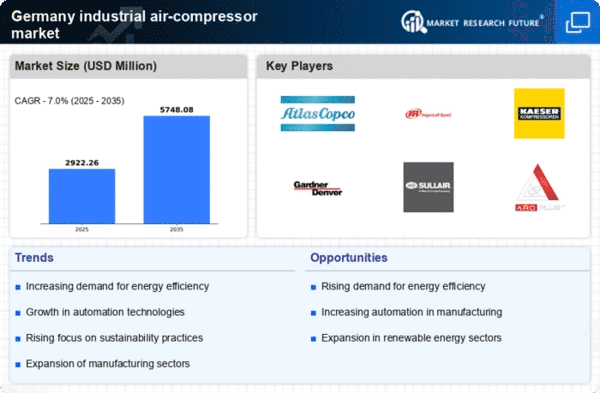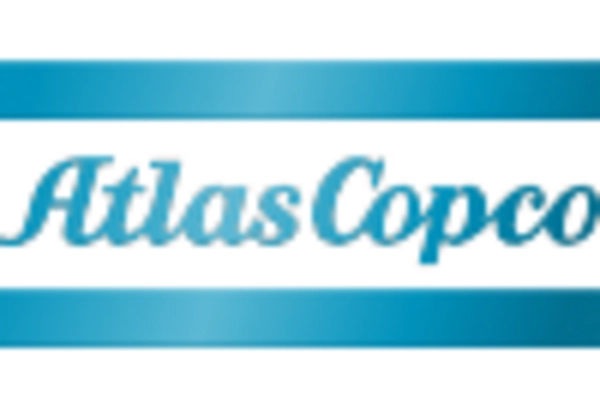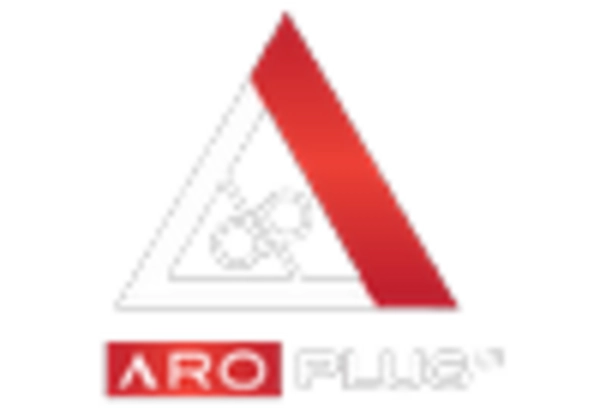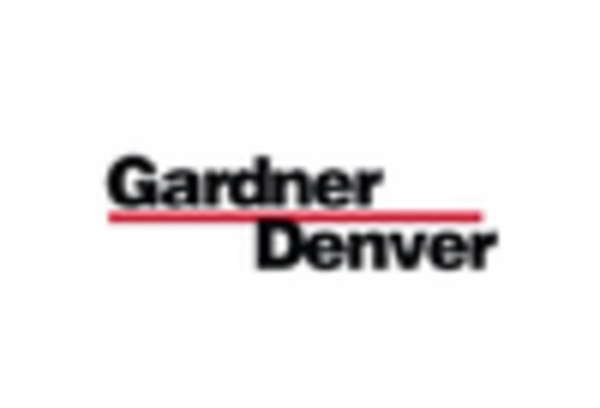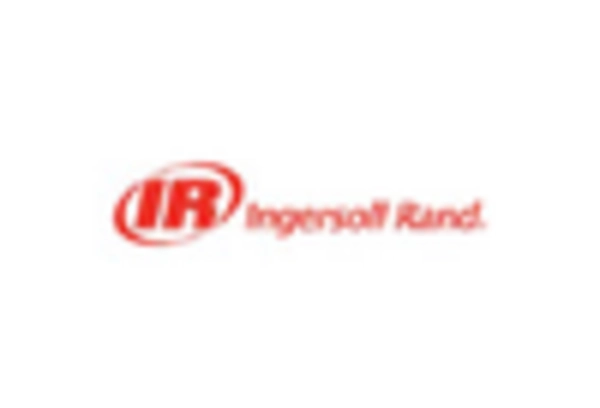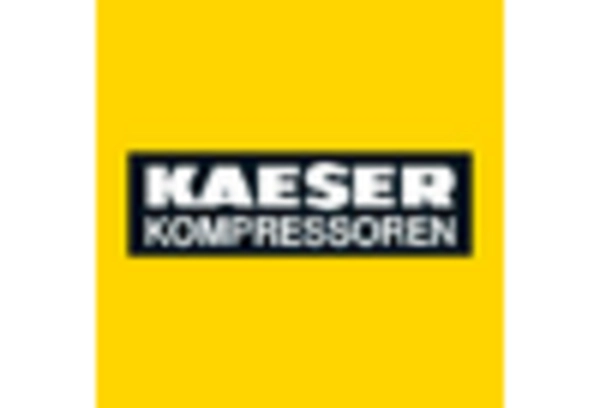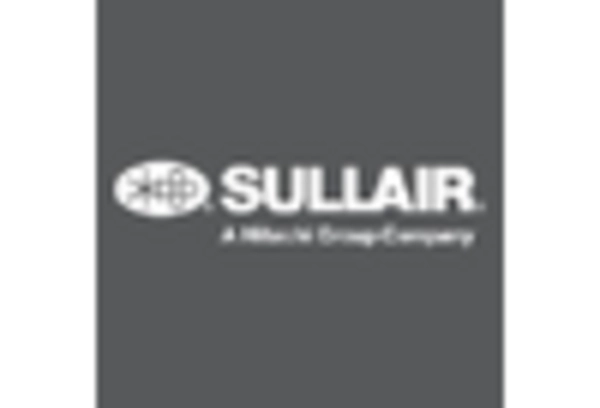Sustainability Initiatives
Germany's commitment to sustainability and environmental protection is significantly influencing the industrial air-compressor market. With stringent regulations aimed at reducing carbon emissions, industries are increasingly seeking energy-efficient air-compression solutions. The market is witnessing a shift towards compressors that utilize renewable energy sources and have lower energy consumption rates. In 2025, it is estimated that energy-efficient models could account for over 50% of total sales in the industrial air-compressor market. This transition not only aligns with governmental policies but also appeals to companies aiming to enhance their corporate social responsibility profiles. As a result, manufacturers are investing in research and development to create eco-friendly compressors that meet these evolving standards, thereby driving growth in the market.
Rising Industrial Automation
The industrial air-compressor market in Germany is experiencing a notable surge due to the increasing adoption of automation technologies across various sectors. As industries strive for enhanced productivity and efficiency, the demand for reliable air-compressors is expected to rise. In 2025, the automation sector is projected to grow by approximately 8%, which directly correlates with the need for advanced air-compression solutions. This trend is particularly evident in manufacturing and assembly lines, where pneumatic tools powered by air-compressors are essential. The integration of smart technologies into air-compressors further enhances their appeal, as they offer real-time monitoring and predictive maintenance capabilities. Consequently, the industrial air-compressor market is likely to benefit from this shift towards automation, as companies seek to optimize their operations and reduce downtime.
Expansion of Manufacturing Sector
The industrial air-compressor market is poised for growth due to the expansion of the manufacturing sector in Germany. As the country continues to be a hub for various industries, including automotive, aerospace, and electronics, the demand for air-compressors is expected to rise. In 2025, the manufacturing sector is projected to grow by approximately 5%, which will likely lead to an increased need for air-compression systems. These systems are crucial for powering tools and machinery, thereby enhancing production capabilities. Furthermore, the trend towards localized production and shorter supply chains is driving manufacturers to invest in reliable air-compression solutions. This expansion not only supports the industrial air-compressor market but also fosters innovation and competition among manufacturers.
Growth in Construction Activities
The industrial air-compressor market is benefiting from the robust growth in construction activities across Germany. With ongoing infrastructure projects and urban development initiatives, the demand for air-compressors is expected to rise significantly. In 2025, the construction sector is projected to grow by around 6%, which will likely drive the need for portable and stationary air-compression solutions. These compressors are essential for powering pneumatic tools used in construction, such as nail guns and jackhammers. Additionally, the trend towards sustainable construction practices is prompting builders to seek energy-efficient air-compressors that align with green building standards. This growth in construction activities not only supports the industrial air-compressor market but also encourages innovation in product offerings.
Technological Integration in Equipment
The integration of advanced technologies into industrial equipment is a key driver for the air-compressor market in Germany. As industries increasingly adopt Industry 4.0 principles, the demand for smart air-compressors that can communicate with other machinery is on the rise. These compressors are equipped with IoT capabilities, allowing for remote monitoring and control, which enhances operational efficiency. In 2025, it is anticipated that smart air-compressors will represent a significant portion of the market, potentially exceeding 30% of total sales. This technological shift not only improves performance but also reduces maintenance costs, as predictive analytics can identify potential issues before they escalate. Consequently, the industrial air-compressor market is likely to thrive as companies seek to modernize their operations.


